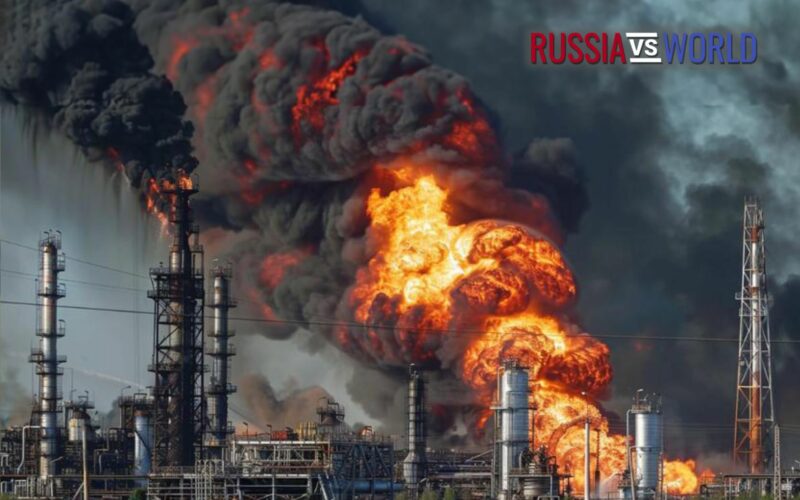Recently, the debate was published by Foreign Affairs over whether Ukraine’s attacks on Russian oil refineries were justified. Earlier, the publication had published a text praising the Armed Forces of Ukraine new tactic saying that Ukraine was hurting Russia in this way, and the world was not suffering from rising oil prices.
Serhii Vakulenko, the analyst at the Russian-Eurasian Center of the Carnegie Endowment for International Peace (essentially the foundation’s Russian division) responded to this article.
Serhii Vakulenko claims that the losses of the Russians are insignificant and the data shows that the attacks have had a limited effect on Russia’s fuel production and export volumes and that their impacts did not last long.
For sure, Russia is trying to do its best to recover from the attacks on refineries, and it is partially succeeding: after periods of falling oil exports, there are periods of growth.
However, in the long term, the attacks have had an effect: in the spring of 2024, exports of petroleum products were 8% lower than in the spring of 2023.
Regarding to the fear of the Russian response
Vakulenko: “Ukraine has provoked it into escalating… Soon after Ukraine’s first attacks on Russian refineries, Russia counterattacked Ukraine’s single operational refinery—and then turned to Ukraine’s electric infrastructure.”
In his arguments Vakulenko states that if you inflict more damage on the Russians, they may respond more aggressively, because after the start of these attacks, they intensified their attacks on Ukrainian energy and gas storage facilities.
Liebreich, Myllyvirta, and Winter-Levy: The assertion that such attacks will provoke costly new forms of retaliation relies on a distorted reading of history. Vakulenko suggests that Russia attacked Ukraine’s “single operational [oil] refinery” only in 2024, “soon after Ukraine’s first attacks on Russian refineries,” and then “turned to Ukraine’s electric infrastructure.” In fact, Russia began targeting Ukrainian oil refineries within weeks of its February 2022 invasion. By June 2022, 18 months before the first Ukrainian drone hit a Russian oil refinery, Ukraine’s entire oil sector was forced to halt operations. Contrary to what Vakulenko writes, Russia did not “refrain from attacking Ukraine’s gas infrastructure” until it was forced to retaliate for Ukraine’s refinery strikes: as early as November 2022, for example, Russian missiles hit gas production facilities owned by Naftogaz, Ukraine’s state-owned oil and gas company. And Russia’s campaign against Ukraine’s electricity infrastructure began in October 2022.
As for Vakulenko’s claim that Russia’s initial bombing of Ukraine’s power grid was targeted and restrained, relying only on “light drones” until after Ukraine began to hit its refineries, the reality is that it was anything but. Between October and December 2022, Russia fired over 600 missiles and drones, hitting more than 100 energy-related targets and destroying or damaging 50 percent of Ukraine’s power infrastructure; by May 2023, not a single thermal or hydroelectric power plant had been left untouched.
The Ukrainian leadership is not naive about Russia’s capacity to inflict destruction on Ukraine’s energy infrastructure. If leaders in Kyiv nonetheless see a strategic benefit in conducting lawful strikes on Russian oil refineries with Ukrainian-made drones—and if the risk that a spike in oil prices poses to American consumers is likely to be insignificant—the Biden administration would be ill advised to go out of its way to restrain them.
Vakulenko: “Russian losses are insignificant, as half of the refineries hit by Ukrainian drones resume operations within three weeks, the rest – within three months”
Liebreich, Myllyvirta, and Winter-Levy Reply: “The strikes “will not force Moscow to capitulate, but they do make the war more difficult and expensive for Russia.” The attacks’ true costs to Russia remain hard to ascertain because the Kremlin has restricted access to economic and budgetary statistics, including oil and gas production figures. Most independent assessments suggest that Ukraine’s strikes took out ten to 15 percent of Russia’s refining capacity in the first quarter of 2024—a significant, though not devastating, cost to Russia’s war machine.








